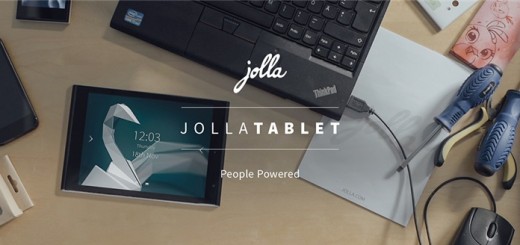Community Intro Series: Franz-Josef Haider
Ever since Sailfish OS became available to be ported to different Android hardware, our community started expanding with new members who were interested in porting Sailfish OS to as many hardware as they can get their hands on, and that still holds true to this date. We got to know people who were so passionate about it that they could solve any obstacle in their way just to make everything work. Evidence of which can be found on Mer project’s wiki page. However, the porter side of our community is usually the silent part of it. They really don’t get that much publicity among other members which makes them remain unknown.
We are about to change that today, by introducing one of the best and most passionate Sailfish OS porters out there, Franz-Josef Haider or “Frajo” for short. We are going to interview him, as we did with the other community members and ask him a few questions regarding his passion. So without further ado, let’s get to it!
James: Hello Frajo! Please let the community know who you are by introducing yourself and giving the community a rough background of you!
Frajo: Hi James, hi fellow SailfishOS community and Jolla fans!
My name is Frajo (short for Franz-Josef) Haider and I am 25 years old. I was born in Austria where I work as a embedded software engineer. We develop firmware for small wearable medical devices.
I went to a technical school where I specialized in technical informatics. Then I studied technical mathematics for my bachelors degree in Innsbruck while visiting some advanced informatics courses and working for the informatics departement as a programming tutor and for the statistics departement as Xen Server administrator. One of my biggest hobbies is tinkering with mobile devices and digital electronics.
James: That’s quite a résumé! So how did you get introduced to Jolla and Sailfish OS? What was the reason you started supporting us and what made you so passionate?
Frajo: I was introduced to Jolla fairly early but I am not sure whether it was Apkenv developer nicknamed “thp” who introduced me or whether I stumbled across Jolla via a TMO post, one of those definitely. I always felt the Android operating system was not ideal, running Java JIT compilers or re-compilers on somewhat limited hardware. Not to mention you always feel like the device doesn’t really belong to you. Then Jolla came around and I suddenly had a device which could do everything I wanted and more.
James: When was the first time you got to meet sailors? Personally, I met you at the International Sailfish Community Event last summer.
Frajo: Well I have been on the #sailfishos-porters IRC channel for some years now but indeed the Jolla Community Event was the first time I met Sailors in person.
James: How was your MWC experience with Jolla? What did you do there and what did you learn from the 4-day event?
Frajo: It was awesome, I met Topias and a lot of other community members and guys from UBports. It was the first time I met sledges (Simonas Leleiva) in person and we had a really great time. When I first saw the Sony device, I was speechless. The weekend before the congress I went sight-seeing and during the week I spent half of the time on the congress and the other half coding.
James: Fantastic! We know by now that you are a capable developer. Where did it all begin? Have you always had a passion for coding?
Frajo: The first time I came in contact with “programming” was when I played with lego robots at the age of 12 and participated in competitions around that. And yes, even though it was only a LabVIEW dialect, I do call it programming. Since then I tried to learn as much about programming as I could and I still want to learn a lot more.
James: Alright, so tell us more about this porting thing! How did you begin porting SFOS to Android hardware, what was your first ported device and what are you working on now?
Frajo: I started with kind of the reverse. I did port Android apps to glibc based mobile operating systems with the help of apkenv. Apkenv has one shared key component with libhybris which is the Android linker. From that I’ve learned much about how libhybris itself works which finally lead me to contributing to libhybris. I’ve dissected Sailfish OS since I got my first Jolla device and ported some apps like mupen64plus and kodi. Then I started to look at the HADK and SailfishOS ports by other people to fully grasp what it takes to complete a SailfishOS port. The first device I ported Sailfish OS to was the N9 – thats not really Android hardware, but I used nitdroid as a base with a hybris adaptation on top. The second device I ported Sailfish OS to was the Nexus 4 (mako) using CyanogenMod 13 as a base which was never done before. Afterwards I helped other porters get their ports to work, sometimes working remotely on devices which I had never held in my hands . Currently I am playing with anbox, implementing a native rendering method inside the LXC container which is possible on Android hardware.
James: That’s cool! What do you have to say to your fellow community people about porting? Is it difficult to do? Who can do it? What is the most challenging part?
Frajo: It is not the easiest thing in the world but anyone with enough endurance and some coding experience can make it happen! To me, the most challenging part has always been one of the first steps: putting something on the screen. Porting is something you do collaboratively, no single porter knows about everything in the Operating System – thats why we have to do it together. The reason why I am continuing to do it is the joy you get when something starts to work after long days of digging through documentation and code. I’ve done my fair share of celebration dances!
James: I would pay to see that! ![]() Now, I ask this one from everyone, How would you improve Jolla? What could we do better?
Now, I ask this one from everyone, How would you improve Jolla? What could we do better?
Frajo: I am not entirely sure what the right answer is. You’re developing an Operating System which is very user friendly, has endless possibilities – much like a desktop computer, and you’re definitely heading in the right direction. I would like to see Sailfish OS on more devices while keeping the Operating System as open as possible. From the developer point of view, Jolla could improve the 64-bit support but I am aware of some of the difficulties with that.
James: Thank you for that! Do you have any words to Jolla blog readers?
Frajo: Keep supporting Jolla! And to the Sailfish OS porters: keep up the good work in bringing this amazing OS into users hands!
Thank you Frajo for this awesome interview. We all hope to see more hardware, adapted to Sailfish OS.
Cheers.
The post Community Intro Series: Franz-Josef Haider appeared first on Jolla Blog.


Laatste reacties